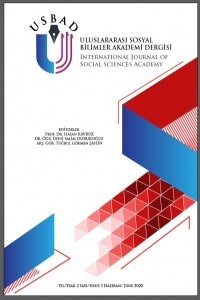
Uluslararası Sosyal Bilimler Akademi Dergisi
Yazarlar: ["Yusuf Kenan BEZGİN"]
Konular:-
DOI:10.47994/usbad.1227406
Anahtar Kelimeler:Din,İslam,Tevhit,Türk Destanları
Özet: Although religions may seem different from each other, there is one common point in which they are basically united. It is nothing more than a person's desire to “believe” in the being or entities that he will connect with. Therefore, a person's desire to believe in any creative power is not a learned event, but a concept that exists in his nature. As it is known, Turks have been under the influence of various religions depending on the geographies they have been in before they fully adopted the religion of Islam. This effect has even left some traces on their religious beliefs, thoughts about the universe and oral culture products from time to time. However, even in the religions they have been under the influence of and even in the ones they have adopted, they have taken one creator, God, into the center. In a general expression, also in their conversion to Islam (IX. century.) it can be said that this belief in one God is the most basic factor. The emphasis on the unity of the One God is to form the essence of the Islamic religion. First of all, the names and attributes of Allah contained in the Noble Qur'an speak of His existence and uniqueness. All nouns and adjectives qualify Him. Therefore, all the prophets came with the message of monotheism (Anbiya, 21/25). This point is also a message of the Qur'an, and in the message is monotheism, which is the ultimate meaning of the book. In this study, it has been tried to draw some inferences about the belief in monotheism in Turkish epics based on the names and attributes of Allah.